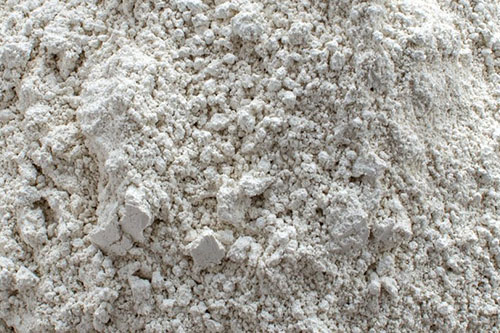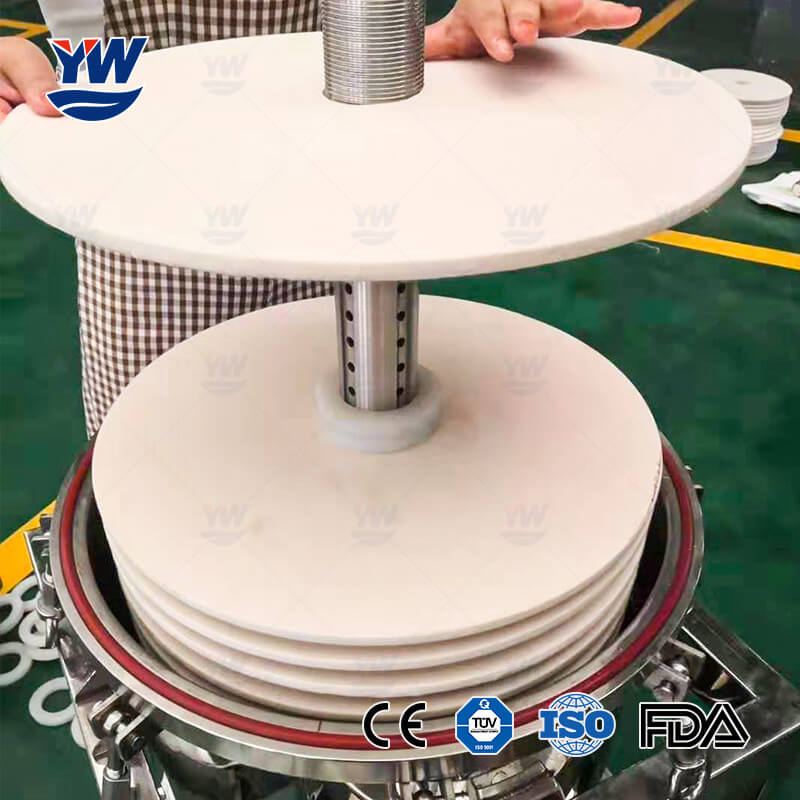Unlocking the Benefits of Diatomaceous Earth Filtering System for Pure and Tidy Water
The expedition of diatomaceous earth (DE) filtering provides a compelling alternative for those seeking lasting and efficient water purification methods. With its unique structure that catches a variety of contaminations, DE filtering not only boosts water quality yet also uses advantages in longevity and power performance over traditional systems. As the demand for tidy water remains to increase globally, understanding the diverse applications and advantages of DE filters may expose essential insights for both family and industrial usage. What certain aspects should be considered when picking the perfect DE filter for your demands?
What Is Diatomaceous Earth?
Diatomaceous planet, frequently referred to as DE, is a naturally happening stratified rock composed primarily of the fossilized remains of small, marine microorganisms referred to as diatoms. These single-celled algae are rich in silica, which is the main part of DE. The distinct framework of diatomaceous planet includes tiny, permeable particles that supply a high area, making it a reliable filtering medium.
DE is typically gathered from old lake beds and down payments, which have built up over hundreds of years. It appears as a penalty, white to off-white powder, and its chemical structure mainly consists of silicon dioxide, in addition to trace quantities of different minerals. This make-up is what provides DE its impressive homes.
In enhancement to its application in water filtration, diatomaceous planet is used in a selection of markets, consisting of agriculture, food storage, and insect control. Its capacity to soak up moisture and its abrasive high qualities make it a beneficial source in these fields. In general, diatomaceous planet stands out as an eco-friendly alternative for various applications because of its all-natural origin and effectiveness in filtration processes.

Exactly How Diatomaceous Planet Filtering Functions

When water passes through a diatomaceous planet filter, the fine particles are captured in the intricate network of tiny pores. The shapes and size of these pores are important, as they are designed to target specific contaminants while enabling clean water to flow with. As water steps with the filter medium, the mechanical activity of the diatomaceous planet catches larger particles, while smaller contaminants are soaked up or literally obstructed.
Additionally, the area given by diatomaceous planet is extensive, improving its capacity to hold impurities. This causes a steady accumulation of entraped bits, which can be periodically removed via a backwashing process. This approach makes sure consistent purification effectiveness and contributes to the general performance of preserving clean and pure water.
Advantages Over Typical Filtration
When check out here contrasting diatomaceous earth filtering system to standard filtering techniques, a number of advantages arise that enhance water purification effectiveness. Among the main advantages is the premium filtration capacity of diatomaceous planet (DE), which can eliminate smaller sized bits and impurities that standard filters may miss. The tiny structure of DE permits it to catch contaminants, including bacteria and protozoa, causing cleaner water.
Additionally, diatomaceous planet filters tend to have a longer lifespan than typical media, decreasing the regularity of replacement and upkeep. This durability not just lowers operational prices but additionally lessens waste, adding to more lasting practices. DE filters likewise operate at reduced pressure, which can cause power savings in massive applications.
Another significant advantage is the convenience of diatomaceous earth. It can be used properly in different contexts, from community water therapy centers to specialized commercial applications (diatomaceous earth filtering). The natural structure of DE makes it an environmentally friendly option, devoid of hazardous chemicals and contaminants commonly connected with synthetic filtering systems
Applications in Family and Market
Countless applications of diatomaceous planet filtering system can be located in both house and commercial setups, highlighting its convenience and effectiveness in water filtration. In property atmospheres, diatomaceous planet (DE) filters are frequently used in pool, efficiently catching debris and bacteria, thus keeping water clearness and health. Furthermore, lots of families use DE in home water purification systems, where it offers to get rid of contaminations, debris, and dangerous virus, making sure secure alcohol consumption water.
In commercial applications, diatomaceous earth filtering is important to different fields, consisting of food and drink production, drugs, and wastewater therapy. In the food industry, DE is made use of in the filtering of beer and a glass of wine, helping with the elimination of yeast and various other particulates while maintaining the beverage's taste profile. In addition, in wastewater therapy centers, DE filters linked here play a critical function in boosting water quality by trapping contaminants and assisting in the recycling of water resources.
The efficiency of diatomaceous earth in both family and industrial applications emphasizes its very useful function in promoting clean water gain access to, adding to public wellness, and sustaining lasting methods.

Choosing the Right DE Filter
Picking the appropriate diatomaceous planet (DE) filter is necessary for guaranteeing ideal water filtration, whether for industrial or residential use. diatomaceous earth filtering. The choice of a DE filter depends on numerous crucial aspects, including the particular application, circulation rate requirements, and the wanted level of purification
First, examine the volume of water to be filtered. For residential use, smaller sized filters suffice, while commercial applications might demand bigger, high-capacity systems. Next off, think about the circulation price; it is important to choose a filter that can manage the called for throughput without jeopardizing water top quality.
In addition, review the purification degree; DE filters come in different grades, influencing the elimination of pollutants and particulates. Higher-grade filters are perfect for applications requiring strict purity levels.
Lastly, take into consideration the maintenance requirements and the accessibility of replacement DE powder. Filters that are easier to keep and have conveniently available products will certainly lower downtime and operational costs. By carefully considering these elements, one can choose a DE filter that meets certain needs, making sure the shipment of clean and risk-free water.
Final Thought
In recap, diatomaceous planet filtering system stands for a considerable improvement in water purification technology, offering enhanced effectiveness and efficiency in capturing contaminations. Embracing diatomaceous earth filtering system can lead to improved public health and wellness end results and better accessibility to tidy water.
The exploration of diatomaceous earth (DE) filtering system provides an engaging choice for those looking for sustainable and effective water filtration methods.When comparing diatomaceous planet filtering system to standard purification methods, numerous advantages emerge that enhance water purification performance.Countless applications of diatomaceous earth filtering system can be my site discovered in both house and industrial setups, highlighting its convenience and performance in water filtration. In household atmospheres, diatomaceous earth (DE) filters are commonly employed in swimming pools, effectively recording debris and microorganisms, thus keeping water quality and hygiene. In wastewater treatment facilities, DE filters play an important duty in enhancing water high quality by capturing impurities and helping with the recycling of water sources.